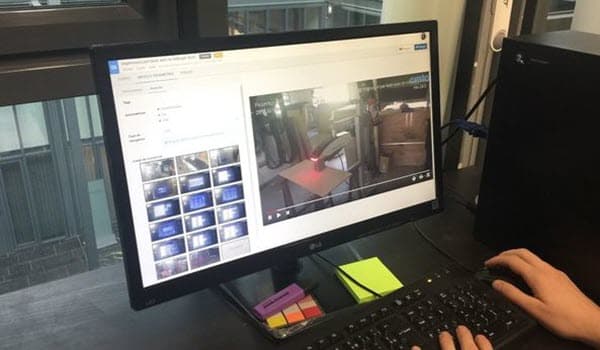While the concept of industry 4.0 seemed futuristic or even surreal and full of promise a few years ago, it is far from denying its potential today. The transition to a Smart Industry model is progressively reaching all layers of the industrial sector, as well as its decision-making and executive levels.
From planning to operations, communication and logistics, everything in the company can be covered by software solutions that facilitate work and boost performance. The rise of technologies (internet of things and data, cyber-physical systems) characterizing the Smart Industry means that production takes place in an environment where physical and digital elements work together to help companies compete.

Processing ever-increasing amounts of information
The mass arrival of new technologies is both the cause and the consequence of the significant increase in information to manage and manipulate in the industry. Internet of things, services and data as well as modern communication and exchange media have brought their huge data flows, which in turn has led to the development of even more powerful tools that can process information in greater volumes. The trend in recent has been clearly towards dematerialization.
Cloud solutions and Big Data challenges are shaping the industrial landscape of today and tomorrow. Consequently, the demand of companies for software that is powerful, effective, easy to use and adapted to their specific needs is growing dramatically. They require storage, analysis and creation support solutions that can support their evolution effectively.
We think in particular of SaaS software (Software as a Service). As they are installed on remote servers and not within the structures of user companies, they facilitate for the latter the outsourcing of some activities related to the information system. These Saas can be used to manage various aspects according to needs: CRM, videoconferencing, human resources management, collaborative software…
The user can therefore focus more on his core business and high-value added activities.
Get the e-book on the 5 steps to follow for a successful industrial project
Being a true competitive advantage
In the era of Smart industry, software is at the heart of the company’s value chain. It is one of the key factors that determine an organization’s ability to gain a competitive advantage. In many ways, the software solution, if it is effective and able to meet the real needs of the user, it can make a difference and outperform competition.
Also, see our article on: Mobility, a key factor in industry 4.0.
Every department in industry 4.0 is likely to benefit from the help of software tools. These are real competitive assets in which it is essential to invest as much as in physical production means and human capital.

This concerns organization and decision-making levels of the company as well as field activities, the shop and production stations. Software is used to generate and manage operating procedures which allows to create a relevant description in a short time to process the data it requires and improve its efficiency.
About Picomto
It is the web and mobile SaaS software solution to create, manage, share and analyze operating procedures and maintenance procedures in a visual manner.
Picomto is part of the digitalization of the industry, #SmartIndustry #Industry4.0, #Paperless





Leave A Comment